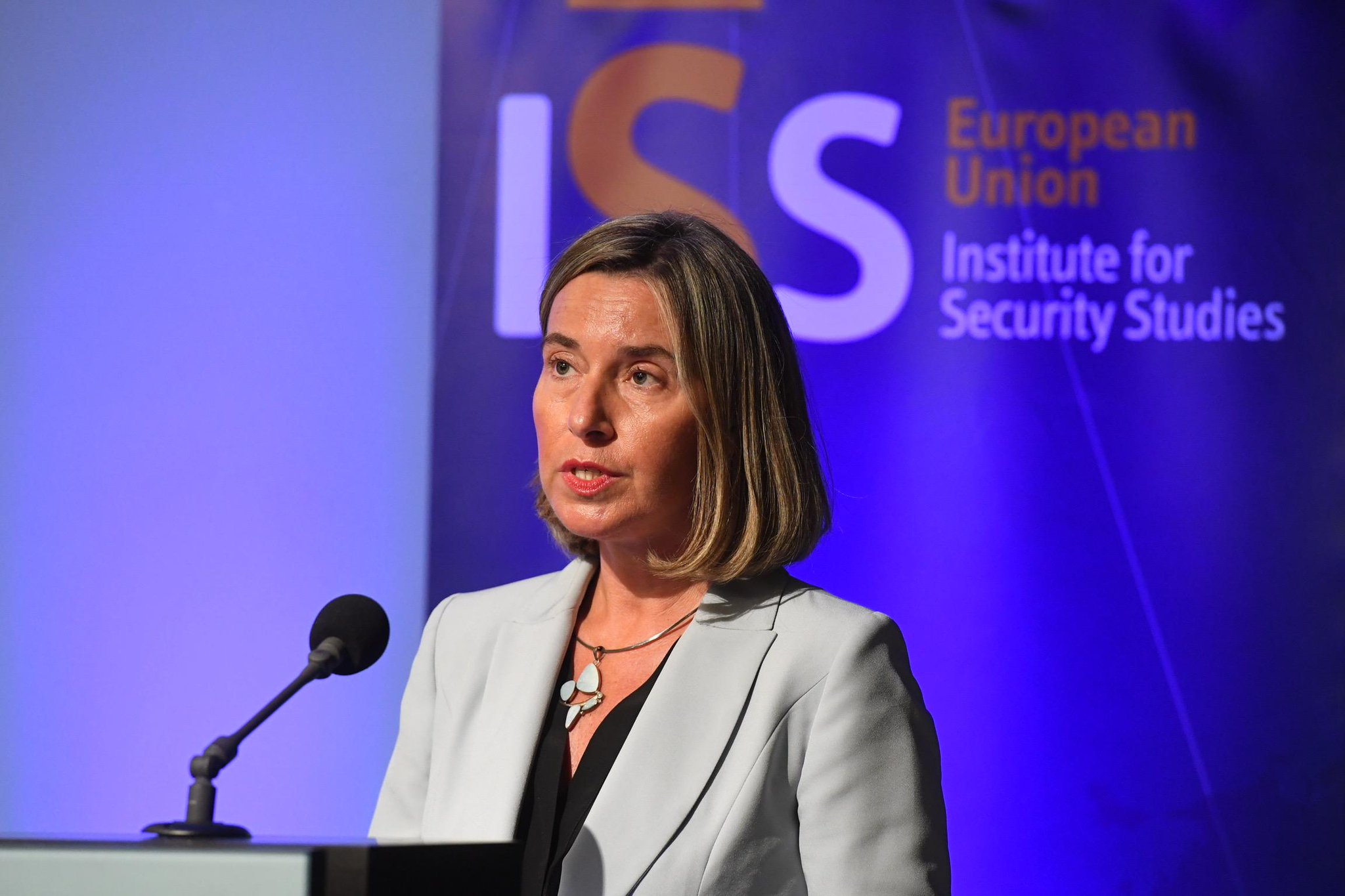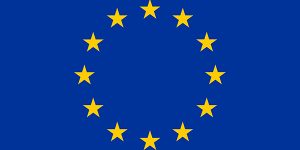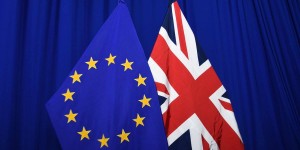Thank you Gustav [Lindström, Director of the EU Institute for Security Studies],
Cher Michel [Barnier, European Commission’s Chief Negotiator],
Thank you all for being here tonight, and again, let me apologise on behalf of both of us for the short delay; we will try to spend all the time we have here to share with you and listen also from you about this important issue.
Let me say how thankful I am for this opportunity. I would like to start with a special thanks to Michel [Barnier] for the work he is doing, but also for suggesting to have this exchange today.
Our cooperation with the United Kingdom on foreign policy, security and defence is one of the most strategic issues at stake in this process. It has probably been under the spotlight less than other aspects so far, but this does not mean we have not been preparing for that or working on that, working closely together with Michel [Barnier] and his team. And also for that, I would like to thank him and his extraordinary team.
The events of these weeks, this week and these days in particular, make it even more obvious that in today’s world you need partners and friends – close ones.
I said in Florence a couple of days ago that our world is in a state of chaos and in the midst of such confusion, the European Union and the United Kingdom need one and another.
First of all, because the choice of leaving the European Union does not change geography. Britain is part of Europe, and this will not change. We will still share the same region. Now, if I am not wrong, Winston Churchill used to say that “Europe is where the weather comes from.” Personally being from Rome, I have my doubt that the weather in London comes from there, but still we are connected. And today, we are even more connected than before.
What happens, not only in the rest of Europe, but in the Middle East, in North Africa, in the East of our continent, will continue to matter to Britain, to the British citizens, as much as it will to the European Union.
There was a time when British foreign policy was defined by “splendid isolation”. It is clear to me that in today’s world, this is simply not an option. Isolation would never work. You might try to isolate yourself from the rest of the world, but it is difficult to imagine that the rest of the world would let you isolate from what is happening elsewhere.
Our security is connected. Our economic growth is connected. We have an interest to stay as close as possible, because we share the same strategic interests. And I have little doubt that our future is one of close partnership and cooperation.
If you think about what has happened since the British referendum, that is quite clear in the field of foreign and security policy. On foreign policy, on security policy, even on defence, we are still taking decisions unanimously at 28. And let me tell those of you who are following the work in the Council, we have not had particular problems in finding unanimity over the last couple of years, on the contrary.
The British interest and the European interest are still very much the same, and I guess they will continue to be very much the same.
We reacted as one to the Salisbury attack and on Iran, we continue to work on the same side, for exactly the same goal. Tomorrow, Boris Johnson [British Foreign Secretary] will be here in Brussels, together with the Foreign Ministers of Germany [Heiko Maas] and France [Jean-Yves Le Drian] to work together, to preserve a deal we have achieved together – also with Russia and China – and we will save it together. So, we will have the meeting with the E3 [France, Germany, United Kingdom] Foreign Ministers tomorrow, and then we will also have a meeting with the Foreign Minister of Iran [Mohammad Javad] Zarif.
“We have an interest to stay as close as possible because we share the same strategic interests” @FedericaMog discusses #EUdiplomacy and #EUdefence after #Brexit pic.twitter.com/uuJpzlAtrk
— European External Action Service – EEAS ???????? (@eu_eeas) May 14, 2018
“>
These couple of examples I have mentioned that are just coming out of the last couple of weeks do not overshadow the ongoing work that we are doing, continuing to cooperate closely within the UN system and within NATO, in partnership between the European Union and NATO, perhaps even more closely than ever before.
But this does not mean that everything will be the same. This was the reassuring part of my introduction.
A majority of British citizens have decided to leave the Union and we obviously have to respect their decision, although I wish it was a different one. But now, we can and we must work to make sure that our new relationship works in the best possible way under the new conditions that the British citizens have decided to put in place.
On our side, I see a European Union that is moving forward and getting stronger. After the UK referendum, many – probably also many in this room – were predicting the end of our Union. Well, we have seen, on the contrary, a relaunch of our common projects, a recommitment to our unity, to our shared future and I will give you three examples where I have seen clear steps on the consolidation of the future of the European Union, as a common project.
One, I see a Union that, in the future, will have more than 27 Member States, because we see that our friends in the Balkans are moving forward on their path to join our family. And I believe it is clear to all that the future of the Union – medium or long term – will be at more than 27.
Second, the EU defence. I see a Union that is much more confident about its potential and also its responsibilities as a global security provider. The European Union of security and defence is taking, finally, its first real steps. For the first time in our history, just now; and still taking decisions at unanimity at 28.
We now have a European Defence Fund for research and for our defence industry. We have joint projects and common commitments under the Permanent Structured Cooperation [PESCO] used for the first time ever after ten years of the Lisbon Treaty. And I have proposed to have one single financial instrument – the European Peace Facility – to finance all our missions and our support to external partners in the security field.
So, never as now, paradoxically, we are moving forward on one of the biggest dreams of our founding fathers and mothers – a European Union that is based also on defence and security, and still, with the European Union having the United Kingdom as its own Member State so far.
The third short example I would like to raise with you is trade. Because I see a Union that is creating new opportunities for its firms, for its products and for protecting its jobs, through more and better free trade agreements as never before. And the list can continue. This is how I see and I believe the European Union will continue after Brexit in the field of foreign, security and defence policy.
And what about the UK? When the withdrawal process comes to an end, the United Kingdom will not be part of our Union anymore. It will be a friend, it will be a partner, but as a “third country”. And I have always said, from the beginning of the story, you have to ask me about Brexit once it falls under my responsibility, which would be external action. At a certain moment, it will be a third party. Britain will not be a “half-member”, or a member “ad honorem”: because there is no such thing. Either you are a member or you are not. The way we work together will inevitably have to change.
At the same time, I have no doubt at all that our cooperation should be and will be as close and as positive as possible. History and geography, interests and values tell me that our partnership will be strong and strategic.
Michel [Barnier] will tell you more on where we stand in the negotiations, but I would like to say just a few words on where I believe we will be after 2019 on our foreign policy and security and defence cooperation.
First of all, we will need the strongest possible channels of communication, to discuss and coordinate our foreign and security policy. We, as the European Union, do not aspire – never – to impose our policies on our partners. This is not our style. And at the same time, we are autonomous in our decisions, and we cherish our strategic autonomy. Our partners do not have a seat at the table when we take decisions, but we do value and appreciate having their views and their advice – and obviously having them joining us, once we take the decisions.
For this reason, I hope we will be able to set up a consultation mechanism with the United Kingdom to coordinate our responses to international events, our positions inside international organisations, and our actions, when our objectives align. This will also require a mechanism to share information in a smooth and secure way, as we already do with some of our partners.
Secondly, I am also convinced that the UK will maintain a strong interest on their side in taking part in our military and civilian missions. These missions contribute to our collective security, in Europe and beyond. And if you think about our fight against piracy in the Indian Ocean, or our new training missions in support of Iraq’s security sector reform, you clearly see that the United Kingdom could have an interest, and will have an interest in continuing to be associated closely to our missions and operations.
The difference will be, they will not sit at the table where these missions and operations will be decided, but they will be, obviously, welcome to join, because cooperation with our partners in this field is not new. We have already signed Framework Participation Agreements with eighteen countries around the world, to facilitate and allow their participation in our missions and operations.
In the coming months, I will present the Council with a proposal for a new “partnership framework” for our security and defence policy. I see this as a mechanism for closer and more constant coordination with the non-EU countries and international organisations, involved in our missions and operations, or otherwise associated to our policy in the field of security and defence. And this will be essential also in our future partnership with the United Kingdom.
And finally, we will still have an interest, I believe a reciprocal interest, to develop some of our military capabilities together. So I believe we can and will find ways for the United Kingdom to cooperate with us, in the framework of our Permanent Structured Cooperation, and with the European Defence Agency. As you know, talks are underway with the Member States and within the Member States and they are part of the Permanent Structured Cooperation in particular, on the modalities for the participation of third countries to projects under PESCO.
So, to sum it up: on our side and I believe also on the United Kingdom’s side, we are ready to work together at the diplomatic level, on the ground, and when it comes to our capabilities. And I know, again, that these objectives, these goals, are shared. The reason is simple. The security of the United Kingdom is our own security. And the security of the European Union is the security of the United Kingdom. There are bonds that cannot be broken. Politics may change, but some realities do not change.
The United Kingdom has helped shape a European Union that is open to the world and committed to making the world a better place. Together we have shaped our Global Strategy for Foreign and Security Policy, which is based on ideas of partnership and responsible engagement that we continue to share. This is why I am confident about the future of our partnership. It will be radically different, but it will and could be a positive and constructive one.
The UK is leaving our Union – and I, again, wish it was not -, it is giving up the power to use our Common Foreign and Security Policy and all its instruments, it is giving up its decision-making power at the EU table, but it is not leaving this world or this continent. And we will still both have our interest in working as closely as possible together. No longer as the members of the same family, but as neighbours, frank partners and friends as, I believe, we will stay.
Thank you.




